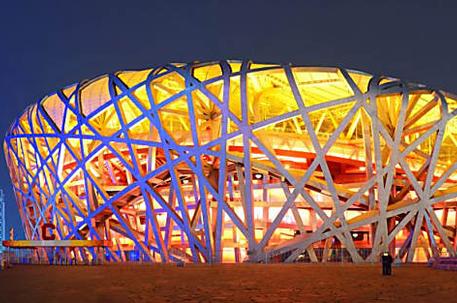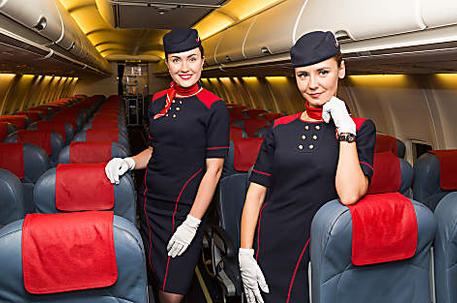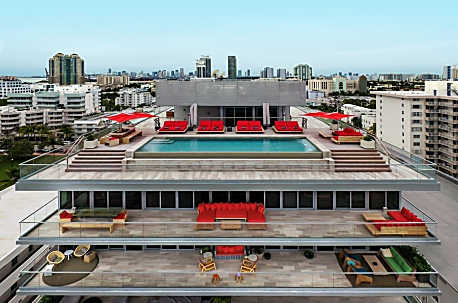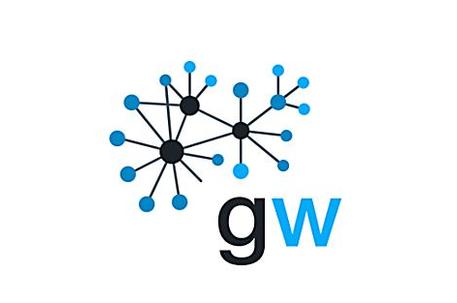US based news media "Washington Post" profiled Mongolian President in its latest issue. Please see below the text story WP run.
ARVAIKHEER,
Mongolia — On the vast Mongolian steppe, birthplace of Genghis Khan, a
strong man has arisen. Literally. Mongolia’s President Khaltmaa Battulga
is a former world martial arts champion who still trains regularly, a
friend of Russia’s Vladimir Putin and a business tycoon with a tough-guy
image.
He is also a nationalist and something
of a populist. Battulga swept into office last year by casting himself
as a Trump-like outsider, a champion of the poor taking on a corrupt and
self-serving political elite.
Like the U.S.
president, this is a man who says he always wins, whose campaign motto
was “Mongolia will win.” But he is now wrestling with the challenge of
his life.
Mongolians overthrew an authoritarian
communist regime in 1990 in a peaceful democratic revolution. Nearly
three decades of democracy have fostered progress but also
glaring inequality, leaving nearly 30 percent of the population in poverty. Corruption is rampant, the dark side of the country’s huge reserves of copper, coal and gold.
“I
asked before the election and I am still asking,” the gruff-voiced
Battulga told a town hall meeting in Arvaikheer in central Mongolia last
month. “Why are the people of a country so rich in resources still so
poor?”
Battulga, 55, rose from poverty to the
country’s highest post, leapfrogging from a sambo wrestling world
championship to a successful business career,
but his power as president is limited — parliament and the prime
minister’s job are in the hands of a rival political party. Battulga has
an important role in setting foreign policy, but his ambitions are much
grander.
For
the past three months, he has been touring Mongolia, holding town hall
meetings in every one of the nation’s 21 provinces, asking for popular
support in his battle to improve the way his country is governed.
“Do
you get the feeling the president we chose is on his own?” he asked
hundreds of people packed into a theater here. “It is time to start
talking about president plus who? President plus the people, working
together.”
Luvsandendev
Sumati, director of the independent Sant Maral polling organization,
underscores the parallels between the most recent Mongolian and U.S.
presidential elections.
After the dirtiest
presidential contest in Mongolia’s history, he said, many people stayed
away or cast blank ballots in protest. In the end, though, Battulga’s
anti-establishment status outweighed questions about his business record
and past corruption allegations.
“The poor
decided he is their president, and once people decide that, they forgive
you everything,” Sumati said. “Anti-establishment politicians are
taking over the globe. Why should Mongolia be any different?”
This
is the most sparsely populated country in the world, the size of Texas,
California and Montana combined but home to just 3 million people,
living in the giant shadows of Russia to the north and China to the
south. Culturally, it remains closer to its northern neighbor, but
economically it is dependent on its booming southern neighbor, with more
than 80 percent of its exports flowing there.
Distrust
of China runs high here, however, and Battulga exploited that to
portray himself as a pro-Moscow, anti-Beijing candidate during the
campaign. As president, though, he takes a more pragmatic approach,
saying that Mongolia should be friends with both countries while
“re-balancing” to reduce China’s trade dominance.
A former president of Mongolia’s judo association, he shares a love of wrestling, and a friendship, with Putin.

Battulga, center, works out at a gym in Ulaanbaatar on May 26. (Giulia Marchi for The Washington Post)
Battulga’s chalk and elbow bandage are ready for him at the gym. (Giulia Marchi for The Washington Post)
“Because
we both practiced judo, it is easier for us to communicate,” he said in
an interview, noting that Putin is also “president of a country that
has been our neighbor for thousands of years.”
But
Battulga wants American support, too. In 1990, then-Secretary of States
James A. Baker III pledged that the United States would be the “third
neighbor” to the newly democratic Mongolia, a pledge repeated when
President George W. Bush visited in 2005. More recently, another secretary of state, John F. Kerry, praised Mongolia as an “oasis of democracy” between Russia and China.
Yet
U.S. defense and security ties with Mongolia are much stronger than
economic ties, which account for less than 2 percent of Mongolian trade.
“The
praises of the United States that Mongolia is ‘an oasis of democracy’
or ‘model of democracy’ have not brought any substantial contribution to
the economy,” Battulga wrote in a letter to President Trump
in December. “Discouraged by this fact, ordinary citizens of Mongolia
are losing confidence in democracy and doubting the choice of democratic
path.”
Battulga asked for improved access for
Mongolian textile exports to the United States. Trump replied that he
would be delighted to explore ways to boost trade in a “fair and
equitable manner,” according to the Mongolian presidential office.
Battulga
began his business life in modest fashion. After graduating from art
school, he sold paintings to tourists in the capital, Ulaanbaatar,
before sewing and selling jeans
and then trading electronics across borders. He used the prize money
and international connections gleaned from his sambo tournaments to get
his start.
A taxi service, television station
and nightclub followed, as well as a lottery business. During the
privatization of state-owned assets, he acquired controlling interests
in a hotel and a meat-processing factory. But he was also forced to flee
the country for six months after he was falsely accused of illegally
importing alcohol, according to his friend and biographer Dorjkhand
Turmunkh. Another investigation into alleged corruption followed a more
recent stint as roads and transport minister, but no charges
were brought.
Battulga underlined his nationalist credentials more than a decade ago by erecting a giant statue of Genghis Khan on horseback
in an amusement park outside the capital. He burnished his populist
credentials by pledging to use proceeds from mining to pay off personal
debts held by ordinary Mongolians.

Battulga, center, attends a book exhibition in Sukhbaatar Square in Ulaanbaatar. (Giulia Marchi for The Washington Post)
Today, Battulga is Mongolia’s most popular politician, Sant Maral polls show.
Yet questions remain for many people: Is the president, with his vast
business empire, part of the solution or part of the problem?
As
president, he is supposed to renounce party affiliation and unite the
nation, but is his nationwide tour a genuine attempt to raise and
address problems — or an attempt to grab personal power and campaign
for his party ahead of parliamentary elections in 2020? Is he a genuine
man of the people or a wannabe strongman?
At
the town hall meeting, complaints were manifold. They included requests
to repatriate offshore funds held by the political elite and exposed in the Panama Papers,
as well as pleas for better conditions for health workers. Some railed
against Chinese workers in Mongolia, others about overcrowding
in schools.
The president listened patiently
for more than an hour before blaming voters for giving the rival
Mongolian People’s Party a dominant position in 2016 parliamentary
elections.
“One party got 65 out of 76 seats,”
he said. “They have all the seats, but unfortunately these past two
years they didn’t do anything.”
But at least one listener pushed back, accusing him of being no better than his rivals.
“You
are blaming voters, saying this is our fault for electing thieves,” he
said. “Look at our lives, look at the condition our kids live in. The
Chinese are the owners of Mongolia now. The country is on the brink of
disaster. I elected you. I voted for you. But Mongolia will only ‘win’
when we get rid of both these two parties.”
CORRECTION:
A headline previously on this article misidentified Khaltmaa Battulga
as a former world judo champion. He is a former world champion at the
martial art sambo and former president of Mongolia’s judo federation.
Read more

The story must be told.
Your subscription supports journalism that matters.
The Post Recommends
Perspective
A former campaign staffer on the ironies in the Inspector General's report.
Longtime
political operative suspects the meeting in a South Florida restaurant
was an FBI setup designed to hurt the Republican nominee.
Teen’s father says Palestinians have no rights; soldier says he was abandoned by the system.
Most Read World
- 1
 A woman went to check her corn — and was swallowed by a python
A woman went to check her corn — and was swallowed by a python - 2
 After a killing, an Israeli soldier and an Arab family confronted justice
After a killing, an Israeli soldier and an Arab family confronted justice - 3
 Two years after Colombia’s peace accord, the historic pact is in jeopardy
Two years after Colombia’s peace accord, the historic pact is in jeopardy - 4
 Mongolia’s president, a former martial-arts champion, wrestles with some major problems
Mongolia’s president, a former martial-arts champion, wrestles with some major problems - 5
 U.S. to house migrant children in tents outside El Paso as government takes more into custody
U.S. to house migrant children in tents outside El Paso as government takes more into custody

The story must be told.
Subscribe to The Washington Post
Our Online Games
Play right from this page

















![[Gallery] Most People Missed The Giant Blooper In This Iconic 'Forrest Gump' Scene [Gallery] Most People Missed The Giant Blooper In This Iconic 'Forrest Gump' Scene](https://images.outbrainimg.com/transform/v3/eyJpdSI6IjQ3NTE1MGNlNWI4ZDk3ZThkOWRjMWE1ZGE5MWMxY2JjZTQ3NDY4YzY0MmZkZWUwZTlkY2NkOWRiYTE5MGQyMGQiLCJ3IjozMDUsImgiOjIwMiwiZCI6MS41LCJjcyI6MCwiZiI6MH0.jpg)




